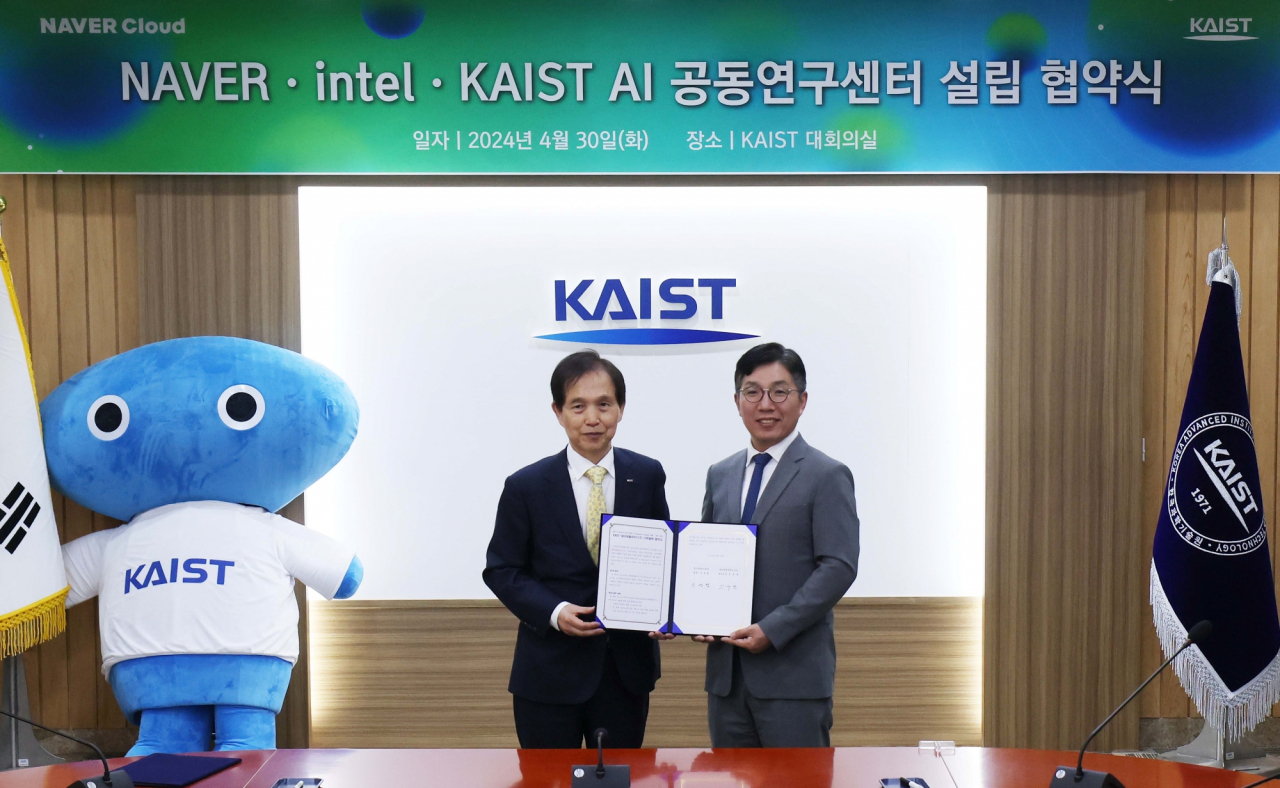
Naver, Intel and the Korea Advanced Institute of Science and Technology will set up a joint lab in Korea to lead the new global ecosystem for artificial intelligence semiconductors, KAIST announced Tuesday.
The joint lab called NIK AI Research Center will be established on the KAIST campus in Daejeon in the first half of this year and begin research in July. KAIST said that the joint research center will be run for three years, adding that its operation can be extended depending on research achievements and the needs of participating organizations.
“Naver Cloud's various AI capabilities based on the Naver Cloud Platform, such as computing, database and AI technologies, Intel's next-generation artificial intelligence chip technology and KAIST's world-class professionals and software research capabilities will be combined to successfully make a creative and innovative ecosystem different from before in the AI chip sector,” said a KAIST official.
According to the announcement, officials from KAIST and Naver Cloud signed a memorandum of understanding for cooperation in various AI sectors, including software development for open source to improve performances of AI chips and servers, cloud and data centers and to optimize their operation.
Kim Joung-ho, an electrical engineering professor at KAIST, and Lee Dong-soo, executive director of Hyperscale AI Efficiency at Naver Cloud, will be co-heads of the joint AI lab.
“KAIST will be able to secure technological know-how in terms of AI development, chip design and software development through utilizing (Intel’s) Gaudi series,” Kim said.
“In particular, the establishment of the joint research center is very meaningful as we can have experiences of operating a large-scale data center and secure AI computing infrastructure that will be required for future research and development.”
For the first two years, KAIST said 20 to 30 research projects will be carried out with the aim of jointly building a platform ecosystem for Gaudi, an AI learning and reasoning chip developed by Intel's Habana Labs.
According to KAIST, the joint AI lab’s research will be mainly conducted on the development of software for open sources in the field of AI such as natural language processing, computer vision and machine learning, with 50 percent of research being carried out over open subjects, 30 percent allocated for making AI chips lighter and 20 percent for optimizing AI chips.
The decision to establish the joint AI lab follows the partnership announcement Naver and Intel unveiled at the Intel Vision 2024 keynote speech session in Phoenix earlier this month. The US chip giant said it will offer information technology infrastructure based on its next-generation AI accelerator Gaudi for its partners to develop various software and carry out industrial and academic researches.
With the chip support from Intel, KAIST plans to release its research results each year.
“Naver Cloud will carry out various research with KAIST, expecting to expand the AI ecosystem centered around HyperClovaX,” said Lee of Naver Cloud.
“We hope that Korea’s AI research will be invigorated further through the joint research center, securing diversity in the AI chip ecosystem.”





